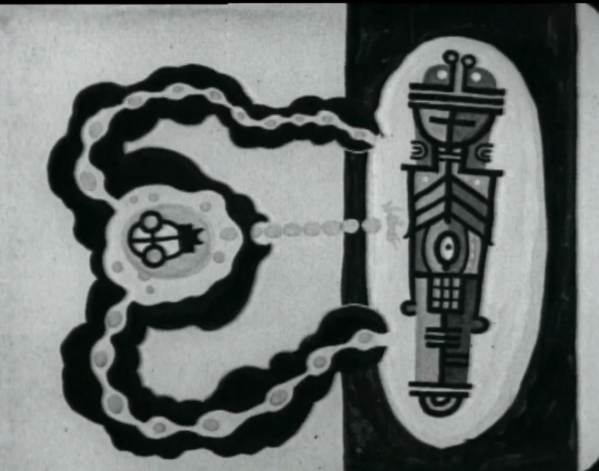
Film Matters: Please tell us about your article that is being published in Film Matters.
Peter Horan: My article highlights how artists’ film and video have evolved in the past century when it comes to the representation of non-Western communities and their cultures. It compares Lotte Reiniger’s The Adventures of Prince Achmed (1926), Len Lye’s Tusalava (1929) and Free Radicals (1958), and Nguyễn Trinh Thi’s Letters from Panduranga (2015) through a postcolonial lens and discusses how Nguyễn is engaged in the nuances of postcolonial identity in a manner which is not replicated by Reiniger and Lye. It eventually concludes that depictions of non-Western cultures in artists’ film and video have developed in the past century from spaces of exoticization to sites of inclusion and respect.
FM: What research and/or methodologies do you incorporate in your article?
PH: I read a variety of conflicting analyses on the work of Reiniger, Lye, and Nguyễn, and tried to coalesce these with further reading on postcolonialism, Orientalism, and non-Western representation more generally. The essay is written through a firmly postcolonial lens but also touches on issues of intersectionality.
FM: Describe the original context for/when writing this article while an undergraduate student.
PH: I originally wrote this essay as part of a module on artists’ film and video, which I undertook while on an Erasmus exchange at the University of St Andrews.
FM: How has your department and/or institution supported your work in film and media?
PH: The film department at my home university of Trinity College, Dublin, have given me invaluable, fundamental skills in film criticism and production, while also developing my critical-thinking skills more generally. Having the opportunity to study at the University of St Andrews for a term in the penultimate year of my undergraduate degree was a privilege and I was able to enjoy an excellent standard of teaching there, with thought-provoking courses and highly impressive facilities offered. Both departments have furthered my knowledge of and interest in film exponentially and the staff have always been highly supportive.
FM: How has your faculty mentor fostered your advancement as a film scholar?
PH: It was a pleasure to learn from Dr. Philippa Lovatt at St Andrews. Before undertaking the module, I had little knowledge of or experience with artists’ film and video. Thanks to Philippa’s excellent teaching and highly engaging classes, however, I quickly became very interested in the topic. As I began my research, Philippa was able to offer me a plethora of reading suggestions, which undoubtedly aided the construction of this essay, and I still apply the lessons I learned in her class to the film criticism I carry out today.
FM: How has the Film Matters editorial and publication process impacted the development/evolution of your article?
PH: The editorial process with Film Matters allowed me to identify the elements of my essay which needed revision. Consequently, I endeavored to make it as engaging and accessible a read as possible, while still maintaining an appropriately academic tone.
FM: What audience do you hope to reach with your Film Matters article and/or what impact do you hope it has on the field of film studies?
PH: In contrast to Hollywood blockbusters and classic auteurist output, the films discussed in my essay are under-discussed and -seen. I particularly enjoyed Nguyễn’s film and hope that anyone who reads my article may be persuaded to explore her work and the work of contemporary experimental filmmakers more thoroughly.
FM: What are your future plans?
PH: As I move toward the end of my undergraduate degree, I hope to further explore and strengthen my understanding of film and television, either at postgraduate level or through more practical work. I currently enjoy screenwriting and working as the Deputy Editor of the Trinity Film Review, Ireland’s only student publication dedicated to cinema, and hope to develop my writing and editorial skills further in the future.
Author Biography
Peter Horan studies English Literature and Film Studies at Trinity College, Dublin. He completed an Erasmus exchange at the University of St Andrews in 2019, wherein he studied artists’ film and video. He enjoys screenwriting and is currently the Deputy Editor of the Trinity Film Review, Ireland’s only student publication dedicated solely to cinema.







































